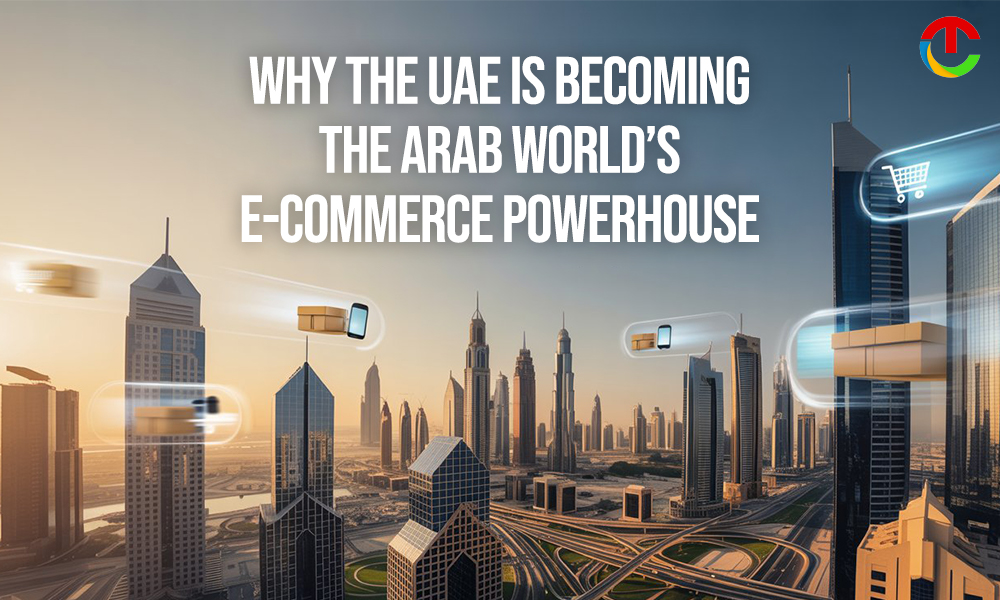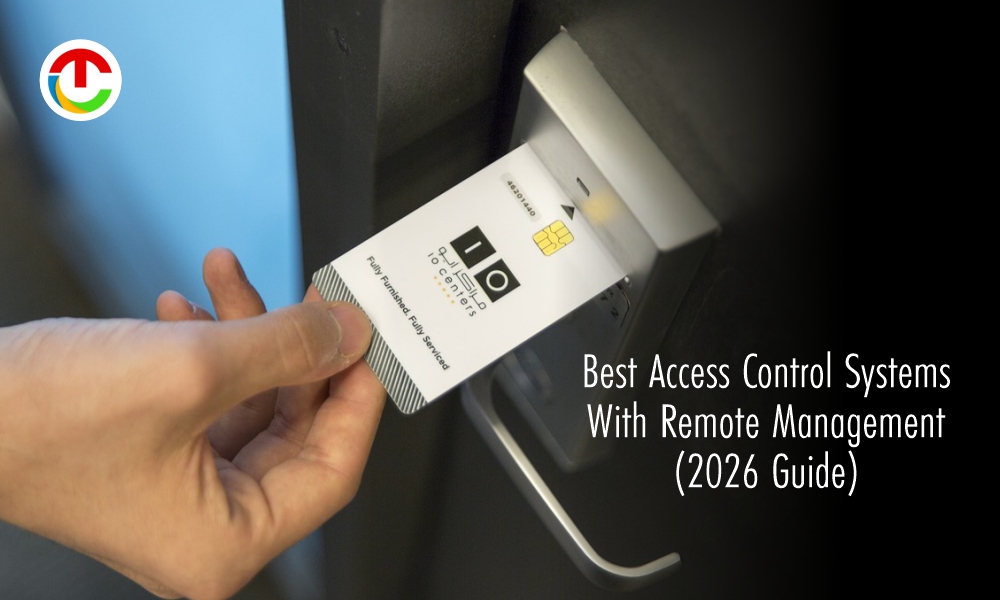The Arab region is significantly emerging as an e-commerce hub. The cutting-edge technology and state-of-the-art infrastructure, alongside an advanced online trade ecosystem, have transformed it into a digital business hub. Built on decades of forward-thinking infrastructure investments, digital policy reform, and strong entrepreneurial ecosystems, the UAE is now reaping what was sown. As global dynamics shift supply chains, consumer behavior, payments, and logistics, the UAE has positioned itself at the intersection of technological readiness and regulatory clarity. In this environment, both consumers and businesses find fertile ground for growth.
The Rise of the UAE’s E-Commerce Market
According to official data, the UAE’s online trade market reached AED 32.3 billion (US$8.8 billion) in 2024, and it is expected to cross AED 50 billion (US$13.8 billion) by 2029. This growth trajectory reflects a compound annual growth rate (CAGR) of nearly 10%.
Consumer adoption is accelerating. By 2024, 6.5 million people in the UAE shopped online, a sharp rise from 4.5 million in 2019. Categories such as fashion, electronics, and household goods dominate, while food delivery and digital services are gaining ground.
Government Policies and Strategic Vision
The UAE government plays a pivotal role in building trust and enabling growth. Initiatives such as the UAE Digital Economy Strategy and regulations like the Federal Decree Law No. 14 of 2023 on Modern Technology-Based Trade provide a clear legal framework for online business.
The official portal u.ae serves as a hub for entrepreneurs and consumers, offering guidelines, licensing procedures, and dispute resolution mechanisms. This structured regulatory environment reassures investors, ensures consumer rights, and fosters sustainable industry growth.
World-Class Infrastructure and Logistics
A major reason behind the UAE’s success in e-commerce lies in its infrastructure. The country boasts one of the fastest internet penetration rates globally, advanced mobile connectivity, and world-class logistics hubs.
Specialized zones such as EZDubai and free trade hubs in Abu Dhabi and Dubai provide tailored ecosystems for digital retailers and global platforms. State-of-the-art warehouses, last-mile delivery systems, and integrated supply chains make it easier for businesses to operate efficiently and reach consumers quickly.
Changing Consumer Behavior
The UAE’s young, tech-savvy, and affluent population is fueling digital demand. Mobile commerce is particularly strong, with smartphones accounting for more than 60% of online transactions in 2024.
Payment trends are also shifting. While credit and debit cards remain popular, digital wallets now represent more than half of online payments, up from 41% in 2020. Additionally, flexible solutions such as “Buy Now, Pay Later” have gained rapid traction, encouraging higher purchase volumes and repeat transactions.
Competitive Advantages of the UAE
1.Regional Gateway – The UAE’s location and trade agreements position it as a hub for cross-border e-commerce, enabling access to GCC, MENA, and even South Asian markets.
2.Innovation-Driven Retail – Businesses are leveraging AI, data analytics, and augmented reality to enhance user experiences and optimize supply chains.
3.Secure Payments and Trust – Strong consumer protection laws and secure gateways build trust, a crucial factor in online commerce adoption.
4.Omnichannel Integration – Traditional retailers are blending offline and online models, providing seamless shopping experiences.
Challenges & What’s Needed to Sustain Leadership
While the UAE has positioned itself as the region’s web retail powerhouse, sustaining this momentum requires addressing several key challenges:
Logistics Profitability
Consumers increasingly expect free delivery and hassle-free returns, but these come with high operational costs for retailers. Balancing consumer expectations with sustainable business models will be critical, especially as competition intensifies and margins shrink. Investment in automation, smart warehousing, and AI-driven route optimization can help mitigate these costs.
Cross-Border Trade Complexities
Although the UAE is a gateway for regional trade, differences in customs regulations, tariffs, and compliance standards across neighboring countries create friction. Harmonizing policies at the GCC level, improving regional payment systems, and streamlining customs clearance will be necessary for e-commerce players to scale across borders efficiently.
Cybersecurity and Data Privacy
As digital transactions grow, so does the risk of fraud and cybercrime. The UAE has strong frameworks in place, but continuous upgrades in cybersecurity infrastructure, strict enforcement of data protection laws, and consumer awareness campaigns are vital to maintaining trust in the ecosystem.
Talent and Skills Gap
Rapid technological growth demands specialized skills in data analytics, digital marketing, logistics management, and AI. While the UAE is attracting global talent, developing local capabilities through training programs and academic-industry collaboration will be essential for long-term resilience.
Market Saturation and Competition
With global giants, regional players, and local startups all vying for market share, differentiation is becoming increasingly difficult. Brands will need to move beyond price wars and focus on customer experience, personalization, and niche positioning to stay competitive.
Conclusion
The UAE’s rise as the Arab world’s digital commerce powerhouse is no coincidence. It is the outcome of visionary policymaking, world-class infrastructure, and a digitally ready consumer base. With a market expected to surpass AED 50 billion within the next five years, the UAE is not only redefining regional online trade but also positioning itself as a global benchmark for digital commerce.
For entrepreneurs, investors, and businesses, the message is clear: the UAE offers a fertile environment where innovation, trust, and opportunity converge. The future of Arab e-commerce is being written in the UAE, and its impact will ripple across the entire region.




